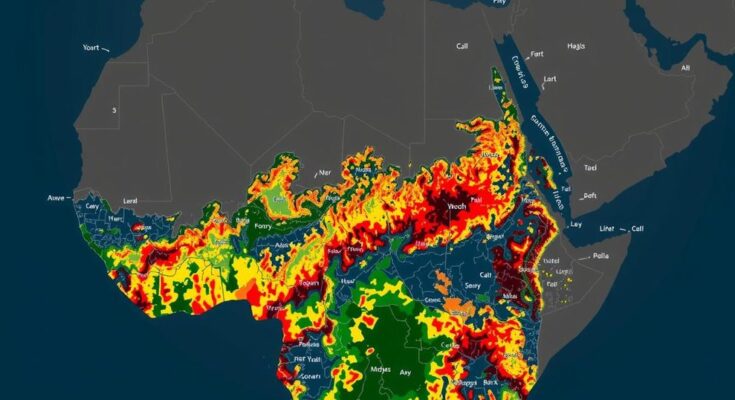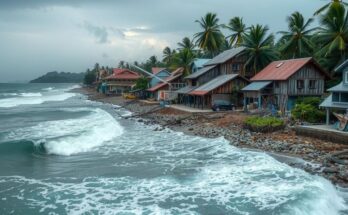The Central African Republic is grappling with the dual challenges of climate change and ongoing violence, driven by socioecological vulnerabilities and a volatile security situation. Although security is improving, clashes between government forces and various factions persist, further complicating humanitarian efforts. The spillover effects from regional conflicts, notably the war in Sudan, have compounded the crisis in CAR, necessitating urgent international intervention to address these interconnected issues.
This fact sheet provides a comprehensive overview of the intersections between climate change, security, and peace in the Central African Republic (CAR). The country faces significant challenges due to climate-related vulnerabilities, coupled with ongoing conflicts that exacerbate these issues. Vulnerabilities stem from the lack of effective state governance, poor management of natural resources, and low resilience at household and community levels. While there have been improvements in the security environment in recent years, it remains precarious, marked by clashes among various factions, including government forces, the Coalition of Patriots for Change (CPC), self-defense groups, and external actors such as the Wagner Group, now referred to as Africa Corps. Furthermore, the effects of climate change have led to increased competition for resources, particularly as pastoralists are forced to migrate earlier than usual due to changing environmental conditions. The unstable situation is further complicated by the spillover effects of the conflict in Sudan, which has intensified the humanitarian crisis within CAR, particularly in regions such as Vakaga and Haute-Kotto. The international community is called upon to undertake specific actions to address these intertwined challenges effectively.
The Central African Republic is situated in a region heavily impacted by both climate change and ongoing conflicts. The convergence of these two factors has resulted in a complex humanitarian crisis characterized by food insecurity, displacement, and ongoing violence. The socioecological vulnerabilities in CAR are exacerbated by a weak state presence, mismanagement of resources, and intermittent conflicts that hinder development. The persistent instability is a barrier to effective adaptation to climate impacts, thus creating a vicious cycle of insecurity and vulnerability. The latest shifts in climate patterns are driving pastoralist communities to migrate earlier, leading to heightened tensions over land and resources. In addition, the regional instability stemming from conflicts in bordering territories, such as Sudan, adds further strain to the already fragile situation in CAR.
In conclusion, the Central African Republic stands at the crossroads of climate challenges and security dilemmas. Ongoing conflicts, coupled with the exacerbating impacts of climate change, necessitate urgent and coordinated action from the international community. Addressing the root causes of vulnerability and instability is paramount to achieving lasting peace and ensuring the resilience of CAR’s communities. Collaborative efforts must focus on strengthening governance, promoting sustainable resource management, and enhancing community resilience to navigate these complex challenges effectively.
Original Source: reliefweb.int




